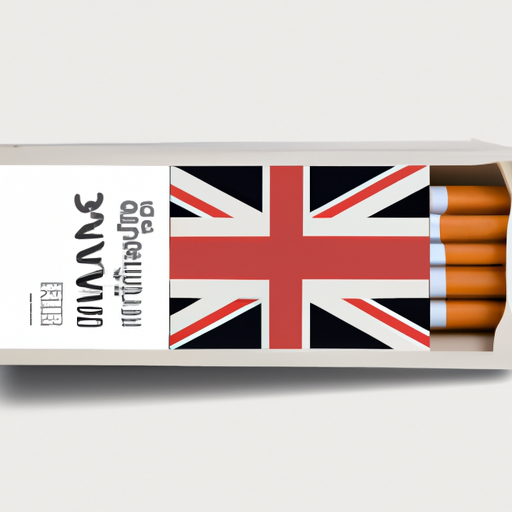
As a resident of the United Kingdom, one thing that has always been a common sight is people smoking cigarettes. Whether it’s at a bar, in a park, or just walking down the street, it’s hard to ignore the presence of cigarettes in our daily lives. But what exactly is the story behind cigarettes in the UK?
Firstly, it’s important to understand the history of smoking in the UK. The use of tobacco was introduced to England in the 16th century by Sir Walter Raleigh, and it quickly became popular among the elite class. However, it wasn’t until the 19th century that tobacco use became more widespread and affordable for the general population. In fact, by the mid-19th century, London was known as the “smoking showroom of the world” due to its large number of tobacco shops.
Fast forward to the 20th century and cigarettes had become a norm in British society. From the iconic images of soldiers smoking during World War II to the rise of pop culture icons like Audrey Hepburn and James Dean who were often photographed smoking, cigarettes were seen as a symbol of sophistication and rebellion.
However, in the late 20th century, the dangers of smoking became more widely known. The government started to take action to reduce smoking rates in the UK, with the introduction of health warnings on cigarette packaging in the 1970s and the ban on tobacco advertising in the 1990s. The anti-smoking stance was further reinforced with the introduction of the smoking ban in public places in 2007.
But despite these efforts, cigarettes are still a huge part of British culture. In fact, according to a survey conducted by the Office for National Statistics in 2018, about 14.9% of adults in the UK are current smokers. And while this number has decreased over the years, it still shows that there is a significant number of people who continue to smoke despite the known risks.
So why do people in the UK still smoke? For some, it may be a cultural norm that they grew up with. It’s a social activity that brings people together, especially in pubs and bars. It’s also a way to relieve stress and cope with emotions. And let’s face it, nicotine is highly addictive, making it difficult for smokers to quit.
But the real question is, how easy is it to access cigarettes in the UK? It’s common knowledge that cigarettes are heavily taxed in the UK, making them quite expensive. In fact, according to the Tobacco Manufacturers’ Association, as of 2021, the average price for a pack of 20 cigarettes is around £12.50. This is significantly higher than the average price in other European countries.
Not only are cigarettes expensive, but they are also strictly regulated. In 2016, the UK government introduced plain packaging for cigarettes, meaning that all cigarette packaging must have the same color, font, and size of the brand name. This was implemented in an effort to make smoking less attractive, especially to young people.
Additionally, cigarettes in the UK can only be sold at licensed retailers, such as newsagents and supermarkets, and they can only be purchased by individuals over the age of 18. The sale of cigarettes to anyone younger is strictly prohibited.
But despite these regulations, there is still a widespread issue of underage smoking in the UK. In fact, a study conducted by the UK Youth Parliament in 2020 found that over 30% of young smokers had purchased cigarettes from unauthorized retailers, such as friends or street sellers. This highlights the need for stricter enforcement of the existing laws and regulations surrounding the sale of cigarettes.
So what is the future of cigarettes in the UK? As the world moves towards a more health-conscious society, it’s likely that smoking rates will continue to decrease. The rise of alternative products, such as e-cigarettes and heat-not-burn devices, has also provided smokers with less harmful options. However, it’s important to note that these products are not completely risk-free and the debate on their safety and effectiveness is ongoing.
In conclusion, cigarettes have a long and complex history in the UK. Despite efforts by the government to reduce smoking rates, it’s clear that cigarettes still hold a significant place in British culture. However, the expensive prices and strict regulations make it difficult for people to access them, and hopefully, with stricter enforcement, underage smoking can be reduced. As for the future, only time will tell if cigarettes will continue to hold their place in British society or if alternatives will eventually take over.